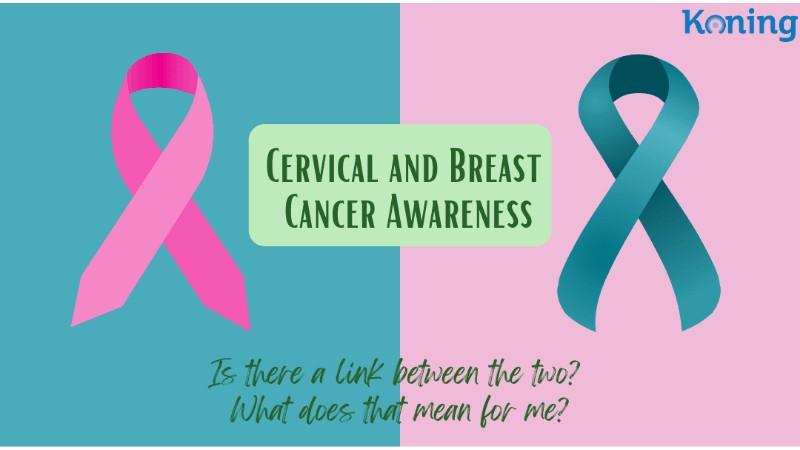
- Blog /
- January 24, 2022
Cervical and Breast Cancer Awareness
Nature does not recognize gender equality. Like it or not, biological men and women differ significantly in certain parts of their makeup, which results in unique health issues for each sex. Breast cancer is one of those terrifying diseases that mostly affects women, with less that 1% of all cases involving men.
Unfortunately, this illness is not unique, and there are a number of other cancers that are prevalent in females. One such disease is, of course, cervical cancer; with January being the National Cervical Cancer Awareness Month, it’s time to discuss ways to prevent it, as well as its possible implications for breast health.
What Is Cervical Cancer?
Unlike breast cancer, cervical cancer is much more preventable because it is caused primarily by a viral infection, rather than genetics or mutations. The human papillomavirus (HPV) is commonly transmitted through sexual contact, but it does not automatically lead to the development of cervical cancer. In fact, about half of sexually active people are likely to get HPV at some point in their lives.
While the virus itself is relatively easy to treat, it can still cause cervical cancer in a small percentage of women. This is why preventative measures, such as sexual protection and vaccination are crucial. In addition, regular screening and early detection can be lifesaving when it comes to any kind of cancer. (To find out more about prevention and early diagnosis of breast cancer, visit koninghealth.com!)
HPV and Breast Health
There is some evidence of a link between HPV and breast cancer, but scientists remain divided and unclear about the exact nature of this connection. Several recent studies found a significant percentage of women with breast cancer to have HPV DNA in their breast cancer tissue, but this does not necessarily prove that HPV causes breast cancer. Nevertheless, the possibility is there, and it is always a good idea to be aware of all the risks.
Staying Safe
Again, cervical cancer is one of the most preventable of cancers. In a world where maintaining health and wellness is increasingly more complex, you owe it to yourself to prioritize your wellbeing and protect your body from unnecessary trauma.
In order to avoid getting HPV, the infection that may lead to cancer, make sure to use protection during sexual activity and have open conversations about sexual history with all sexual partners. Anyone under the age of 26 should consider getting vaccinated against HPV.
Even if you do get the virus, it is likely that your immune system will fight it off before it turns into a cancer, so it is important to keep your immune system strong through smart lifestyle choices and habits. In addition, people who have contracted HPV can lower the risk of developing cervical cancer by avoiding smoking and oral contraceptives, as well as continually working with their healthcare professional.
